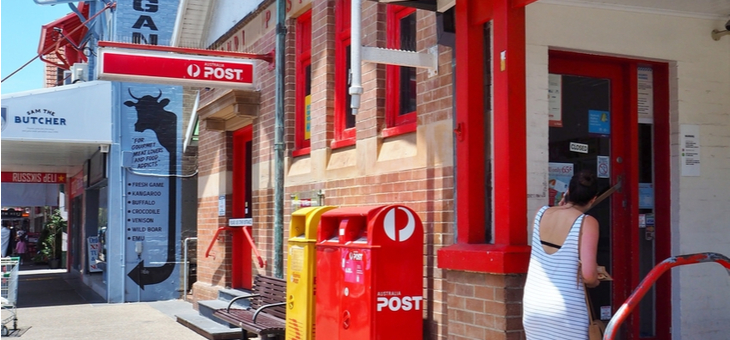Restricted access to cash and higher bank fees and charges are behind a new push to create a public bank in Australia.
The coronavirus pandemic has accelerated the move to online banking, but many older Australians still prefer to make their transactions face-to-face and this is becoming more difficult every month.
According to NAB chief executive Ross McEwan, the COVID-19 situation has resulted in a rapid take-up of digital banking, but as a result banks are closing branches all over Australia like never before.
ATMs have also seen a decrease in usage, which started before the pandemic, and banks are slowly shutting them down, too.
With the access to cash, which is still preferred by many older Australians, becoming more difficult, leading think tank Per Capita has released a discussion paper calling for Australia Post to be able to act like a public bank to secure essential banking services.
The paper makes the case for the creation of a full national savings and loan public bank in Australia and would start by providing Australia Post with an Authorised Deposit-taking Institute (ADI) licence.
The Banking Royal Commission found that many Australians did not have adequate access to basic financial services, and that even those who did are often ill-served by our existing financial institutions.
“Just as we would not leave the creation and maintenance of our health system or our roads entirely in private hands, we should not leave our banking services, financial infrastructure and financial stability entirely in private hands,” the paper explains.
“The establishment of a postal banking service in Australia would, by operating within the existing infrastructure footprint of Australia Post outlets nationwide, provide banking services to Australians who are currently underserviced by the existing banking sector.
“With a social benefit mandate, such a bank could also improve banking services across the country by setting new standards for financial products and services that other banks will have to meet if they are to compete.”
The Greens took a similar policy to the last federal election, calling for the creation of a People’s Bank that would use the Reserve Bank of Australia (RBA) to provide basic low-risk banking services to the public online, over the phone or through Australia Post.
The Greens proposal also included a low-cost mortgage option for homebuyers.
The Per Capita model, called PostBank, proposes a phased-in approach, which would start with the opening of basic savings and transaction accounts and would be followed by credit cards and personal loans, then the introduction of mortgages and commercial lending.
According to the Per Capita paper, the phased-in approach allows for a staged rollout of new services with profits and capital from one stage funding the rollout of the next phase.
New Zealand found itself in a similar situation to Australia with high bank fees due to the concentration of power among the big four banks.
To combat this, in 2002 the New Zealand government introduced Kiwibank with 211 branches mostly in post offices. By 2008, KPMG concluded that banking fees and charges in New Zealand were lower, at least partly as a result of the competition provided by Kiwibank.
Within five years more than 500,000 customers (out of a population of four million) had moved their money to Kiwibank and, according to Roy Morgan research, it quickly became one of New Zealand’s most trusted banks and remains at the top of customer satisfaction surveys.
The Commonwealth Bank first came into existence as a public bank, do you think the time is right for Australia to have a public banking option? Would you use it if it were available?
If you enjoy our content, don’t keep it to yourself. Share our free eNews with your friends and encourage them to sign up.
Related articles:
https://www.yourlifechoices.com.au/finance/banking-and-investment/asic-fears-for-mum-and-dad-investors
https://www.yourlifechoices.com.au/finance/banking-and-investment/noel-explains-index-funds
https://www.yourlifechoices.com.au/retirement/retirement-income/theres-worse-to-come

